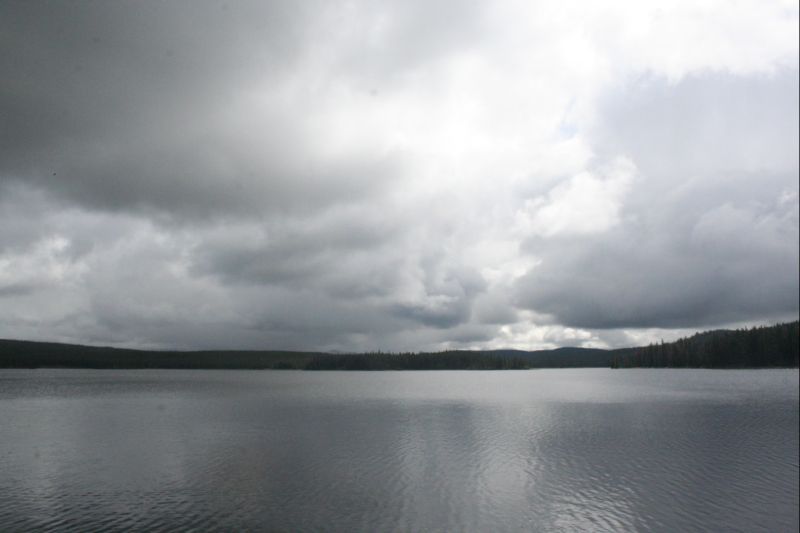B.C. mining company wants aboriginal 'spirituality' ignored in project review
Monday, April 30, 2012
VANCOUVER SUN

Taseko Mines Ltd. is pushing the Harper government to reconsider a controversial gold-copper mining project in the B.C. interior
OTTAWA --- A Vancouver company pushing the Harper government to reconsider a controversial gold-copper mining project in the B.C. interior has privately urged Ottawa to ignore aboriginal requests to consider native "spirituality" as a factor in their determination, according to a letter the company sent to Environment Minister Peter Kent.
A new federal environmental review panel "does not have any right to attribute significance to the spirituality of a place per se," wrote Taseko Mines Ltd. President Russell Hallbauer in a letter obtained under the Access to Information Act and provided to The Vancouver Sun by B.C. independent MLA Bob Simpson.
Taseko, which failed in its 2010 bid to get federal approval after a "scathing" federal review, also asked Ottawa to not permit aboriginal prayer ceremonies at pending hearings on the revised proposal.
And children's plays should also be banned, Taseko President Russell Hallbauer told Kent in his November letter that was released through the Access to Information Act.
The panel allowed "a group of kindergarten children to present a play, in which the children wore fish cut-outs on their heads, moved around the floor, and then all fell over simultaneously, symbolizing the death of the fish," Hallbauer wrote.
Allowing opening prayers wasn't "appropriate" and a "sensational" anti-project film and the children's play also shouldn't have been part of a process that is supposed to be "objective and fact-based."
The company also complained that one of the three panel members, metallurgist and former environmental mining supervisor Nalaine Morin, was a member of a First Nations organization in the area that was opposed to the project.
One native leader said Taseko's letter is an affront to aboriginal spirituality.
"We are tied to the land and that's a spiritual area," said Tsilhqot'in National Government (TNG) Tribal Chair Chief Joe Alphonse of the proposed open-pit mine about 125 kilometres southwest of Williams Lake.
"To not even have that as part of the review, you may as well not have a review at all. Let's go turn the Vatican into a casino hall.
"This is exactly what we're talking about when a company is allowed to make those kinds of suggestions. It's wrong."
Another local First Nations leader, Xeni Gwet'in Chief Marilyn Baptiste, likened Taseko's proposal to the former government-sanctioned residential schools that "outlawed our spirituality, our drumming and our language."
A federal panel appointed under the Canadian Environmental Assessment Act ruled in 2010 against allowing the proposed Prosperity Mine to proceed. Then-environment minister Jim Prentice, now a senior executive at the Canadian Imperial Bank of Commerce, called the panel report "scathing," and the minority Tory government supported the recommendation.
The federal decision came several months after a B.C. government review resulted in Victoria giving the project a green light, saying the job and wealth creation more than balanced environmental damage.
The federal panel report was filled with comments on the cultural and spiritual importance to local First Nations of Taseko's property and especially Fish Lake, which Taseko planned to drain and turn into a tailings dump.
"The Panel has determined that the loss of the Teztan Biny (Fish Lake) and Nabas areas for current use activities, ceremonies, teaching, and cultural and spiritual practices would be irreversible, of high magnitude and have a long-term effect on the Tsilhqot'in," the report stated.
The federal government, which is bringing in sweeping legislative changes to make it easier for companies to get approval for natural resource projects, announced in November it would let the company file a new application based on a plan that doesn't include destroying Fish Lake.
Brian Battison, Taseko's vice president of corporate affairs, also stressed that spirituality isn't part of federal legislation and shouldn't be considered.
He said the company is objecting to children's plays, films and prayers because such events bring too much emotion into the hearings.
"The whole process moves so far beyond the true facts that it makes it very, very difficult for everybody I think, including the panel, to not try to consciously or unconsciously reflect all of that in their findings," Battison said.
"And what happens is the science and the facts get lost, and if they don't get lost they get overwhelmed by these circumstances."
Battison also said the company would consider a federal court challenge if the government appointed a panelist who obviously had a bias in favour of aboriginal opponents.
Simpson, the MLA who obtained the document, said the company is displaying hypocrisy given that its August proposal for the New Prosperity mine made repeated references to Fish Lake's spiritual importance to First Nations.
That proposal calls for the tailings facility to be located two kilometres upstream from Fish Lake.
Simpson said it's "condescending" to suggest that a panel of professionals couldn't properly weigh the relative weight of scientific evidence against emotional displays.
"And it's another affront to any possible relationship they could have with the TNG, which quite frankly they will need. There is no way you proceed with this project without a strong relationship with the company and the First Nations."


